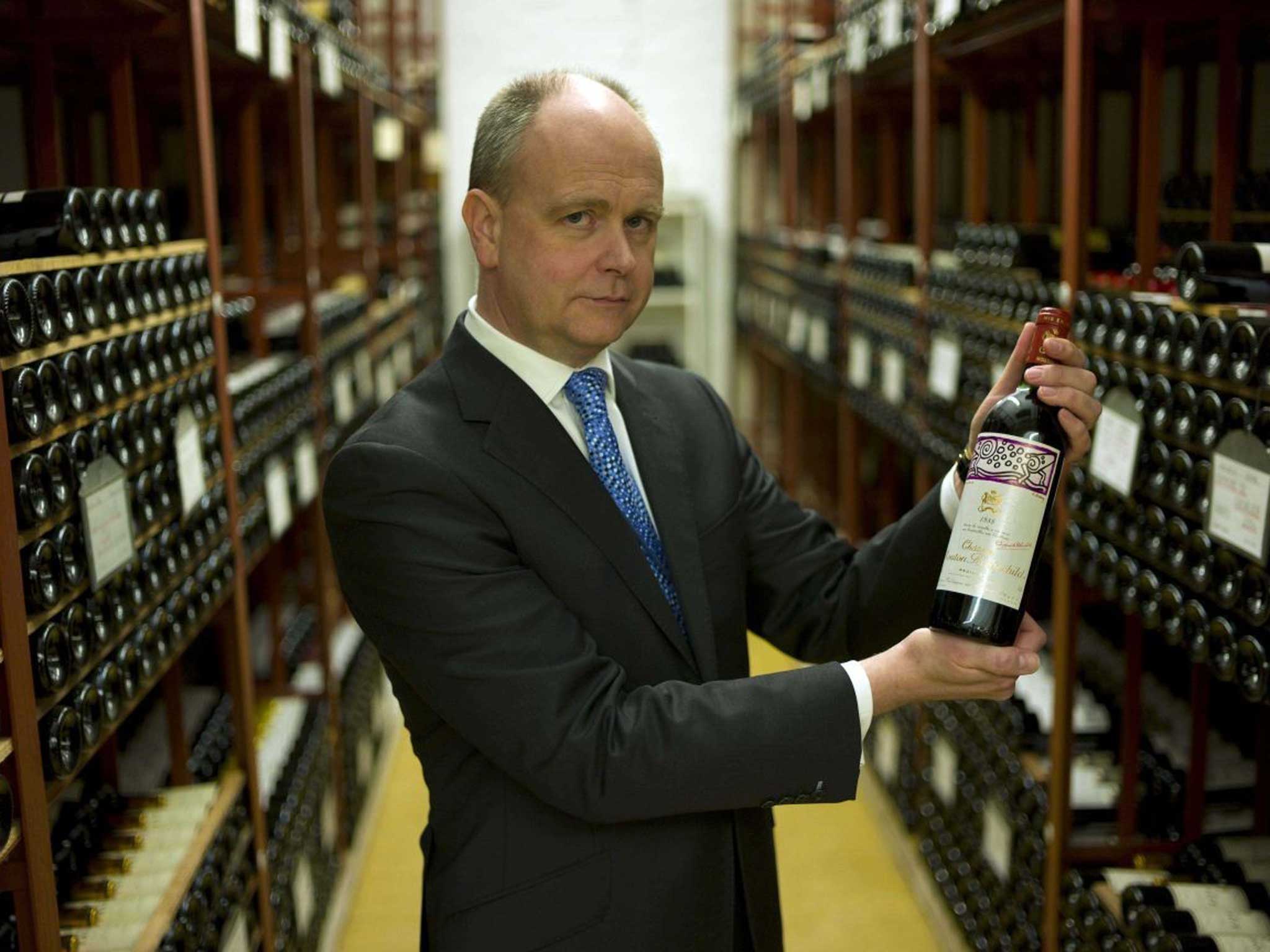Uncorked: No 10's wine list revealed
Tasting notes of prime ministers' cellar tell the story of official hospitality

Your support helps us to tell the story
From reproductive rights to climate change to Big Tech, The Independent is on the ground when the story is developing. Whether it's investigating the financials of Elon Musk's pro-Trump PAC or producing our latest documentary, 'The A Word', which shines a light on the American women fighting for reproductive rights, we know how important it is to parse out the facts from the messaging.
At such a critical moment in US history, we need reporters on the ground. Your donation allows us to keep sending journalists to speak to both sides of the story.
The Independent is trusted by Americans across the entire political spectrum. And unlike many other quality news outlets, we choose not to lock Americans out of our reporting and analysis with paywalls. We believe quality journalism should be available to everyone, paid for by those who can afford it.
Your support makes all the difference.For visiting heads of state, it must be one of those nagging questions – just how important are they to their British hosts? The answer, it seems, may well lie not in the size of the honour guard, nor the depth of pile on the red carpet, but in the wine list.
An unusual insight into how the British government entertains its high-end guests has been revealed by the release of the tasting notes for the £3.2m official wine cellar used to lubricate the wheels of international diplomacy at state banquets and Whitehall receptions.
The 61-page rundown of the 36,527 bottles held in the Foreign Office-administered cellar beneath Lancaster House in central London reveals the quaffability – or not – of the collection of some of the world's most sought-after wines from Château Lafite to Krug.
As a result, any potentate offered a glass of the Corton 1961 Grand Cru Côte de Beaune can rest assured that he or she is being subjected to the very best in vinous flattery that Her Majesty's government can offer.
If a carafe of the Louis Jadot Meursault Charmes Premier Cru 2006 arrives at the table, however, the dignitary may as well jump on the first presidential jet back home.
The notes, released under the Freedom of Information Act, describe the Corton 1961, worth £500 a bottle, as "a national treasure" with "great charm and staying power". Consigning the wine the status of a nuclear weapon in Britain's booze arsenal, the document adds: "Use with extreme caution for Heads of State – fabulous wine."
The little-loved Meursault Charmes, costing around £40 a bottle, fairs less well. It is rewarded with the terse description: "Do not use."
Despite the austerity drive being administered from 11 Downing Street, the coalition has not been shy at deploying its wine stock to impress overseas visitors. Last year, Government Hospitality, which runs the cellar, served up 5,547 bottles – a 20 per cent increase on 2011-12.
This was partly due to the influx of the international great and the good generated by the London Olympics and Paralympics, and the Queen's Diamond Jubilee. There were also more run-of-the-mill gatherings such as a lunch for President Sarkozy of France in Downing Street and a gathering for the general secretary of the Vietnamese Communist Party at Lancaster House.
But the days when HMG's stocks of Château Lynch Bages and Hine cognac were an open-ended resource for bibulous ministers and their guests have drawn to a close. Following a review ordered by William Hague in 2010, the cellar now operates on a self-financing basis, selling off some of its gems to finance acquisitions of new stock.
Last year, 54 bottles of high-end claret, including a case of the sought-after Château Pétrus, were sold for £63,000 to fund purchases of nearly £49,000 to be laid down for future banquets. Nonetheless a formidable cache of tipples remains, dominated by clarets and Burgundies, with a patriotic smattering of English wines, which accounted for 17 per cent of the wines served last year.
The tasting notes, based on the opinions of the Orwellian-sounding Government Wine Committee and consisting of a retired senior diplomat and four Masters of Wine, do nothing for clichés about the language of the genre. The descriptions favour phrases such as "sound and fruity, with more still to come", "stable and tired", and "intense aromas, but a little immature".
But they also offer intriguing insights into the drinking habits of the powerful. Margaret Thatcher had a soft spot for the 1961 Château Margaux Premier Cru Classé, according to a 1989 comment which reads: "The Prime Minister calls it silky."
A brandy – the Château de Laubade Armagnac – is not considered worthy of New World visitors ("Lovely and mellow – use with European guests"), while the home-grown Somerset 10-year-old cider brandy gets a lukewarm "V appley, but not great".
The Foreign Office insisted the wine cellar was an essential diplomatic tool. A spokesman said: "Whether it is national celebrations, state visits, or receiving guests of government, the UK prides itself on giving a warm welcome through its business hospitality. The Government Wine Cellar supports this work in a cost-effective way."
But it is also not above using big occasions to dispose of wines that do not quite meet its highest standards. The most popular claret served last year – 55 bottles of the 1988 Château Pichon-Longueville Baron – is described in the notes as "Downgraded to B and thought aggressive – no hurry to use".
The service also sneaked out three bottles of the ill-starred 2006 Meursault Charmes. The Foreign Office was unable to confirm at which state occasion it was served – nor whether the guests approved.
Join our commenting forum
Join thought-provoking conversations, follow other Independent readers and see their replies
Comments